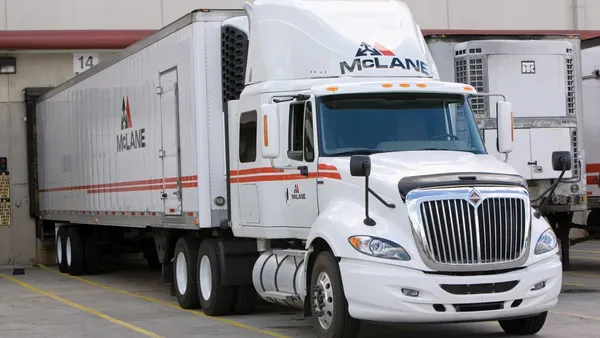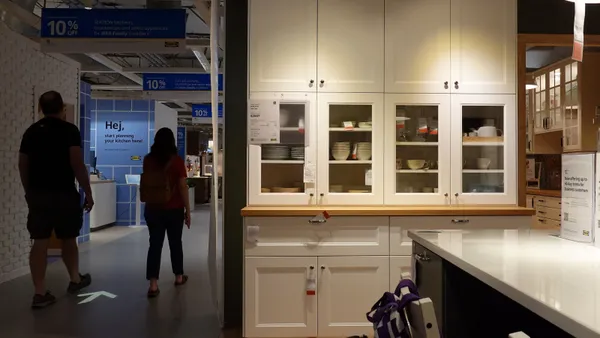Dive Brief:
- Big Lots' e-commerce business achieved profitability ahead of the company's projections thanks to an enthusiastic response to the retailer's relatively new buy online, pickup in-store program (BOPIS), executives said on a Friday earnings call.
- The third quarter was Big Lots' first full quarter offering the service, resulting in double the number of SKUs available online and leading to increased basket size for online orders, with furniture being the most popular category.
- "We're looking at smart ways to minimize cost of delivery and make it more easy for [the customer]," Big Lots CEO Bruce Thorn said on the call. "So, a lot of things to come, but we're being very circumspect about how we add cost to this model and maintain our profitability."
Dive Insight:
In August, when BOPIS was new to the chain, Thorn thought the retailer's fledgling e-commerce offering would reach profitability sometime after 2019.
In 2018, the site did $40 million to $45 million in sales at a loss of $8 million to $9 million. Thorn expected $55 million in sales at a smaller loss for 2019, with sales growth per quarter in the low single digits. BOPIS changed the math.
"When she comes in, she is shopping a little bit more. So, our expectations are great for this new capability, and it's a very profitable way to enter online in a more significant way, as we didn't have to ship the SKUs from a centralized DC, they're in the store," Thorn said in August of the chain's target customer's reaction to the service.
BOPIS is a core omnichannel offering for most modern retailers since the cost to fulfill orders is largely incurred by the customer as opposed to traditional e-commerce orders, which carry a heavy operational cost burden. But discount stores have been slower to adopt more advanced omnichannel strategies along with e-commerce in general, making Big Lots somewhat of an outlier.
Big Lots pivoted toward furniture in 2018 with executives saying that sectionals, fireplaces and mattresses were selling especially well. The online space for these items, however, is dominated by Wayfair, Amazon and direct-to-consumer brands — especially in the mattress category.
No matter the category, any retailer competing on price is likely competing with Walmart, which means no matter the omnichannel success, most retailers are still playing catchup.













